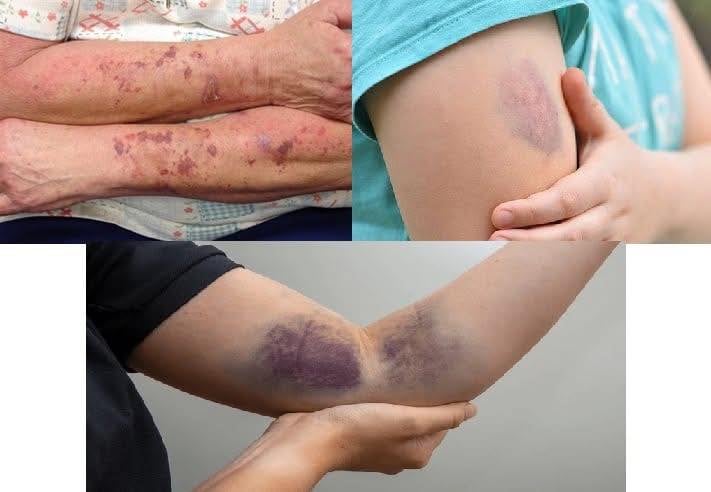In today’s blog, we’re going to take a closer look at one of those everyday health mysteries that many people tend to overlook: bruising. For some, bruises appear after an obvious bump or fall, but for others, they seem to show up out of nowhere. Our goal today is to explain why bruising occurs, what your body might be trying to tell you when it happens, and share practical tips on how to reduce the risk of frequent bruising in the future. By understanding the underlying reasons, you’ll be better prepared to either take preventive steps or recognize when bruising might signal something more serious.
Here’s a little teaser: bruises can sometimes be linked to certain nutritional deficiencies. Yes, those dark blue or purple marks on your skin may not only be the result of a physical knock but could also point to a lack of specific vitamins or minerals in your system. Later in this post, we’ll explore that connection in more detail, so keep reading.
Definition of Bruising
In the medical world, bruising is referred to as ecchymosis. While the term sounds clinical and maybe even unpleasant, it simply describes what most of us already know—a visible mark that occurs when blood leaks beneath the surface of the skin. Unlike a cut, where blood escapes through a wound, a bruise forms when tiny blood vessels called capillaries are damaged, usually from some kind of impact or pressure. Instead of bleeding outward, the blood pools underneath the skin, creating that familiar patch of discoloration.
Bruises often start out as reddish or purplish marks, then change colors over time—shifting to blue, green, yellow, or even brown as the body gradually breaks down and reabsorbs the blood. This process can take days or even weeks, depending on the size of the bruise, the person’s age, and their overall health.
Why Do Bruises Happen?
The most common reason for bruising is some form of trauma—bumping into furniture, exercising, or even carrying something heavy. But not all bruises can be explained this easily. Some people notice that they bruise much more often or more severely than others, and this can raise concerns. In many cases, frequent bruising isn’t just about clumsiness—it can be linked to underlying health conditions, medication use, or deficiencies in key vitamins that keep blood vessels strong and functioning properly.
It’s important to note that while certain medical conditions may not directly cause a bruise, they can make the body more vulnerable to bruising. For example, conditions that affect blood clotting, or even side effects from medications like blood thinners, can make capillaries more fragile and reduce the body’s ability to stop bleeding beneath the skin quickly. Nutritional gaps, such as insufficient vitamin C or vitamin K, may also play a role.
